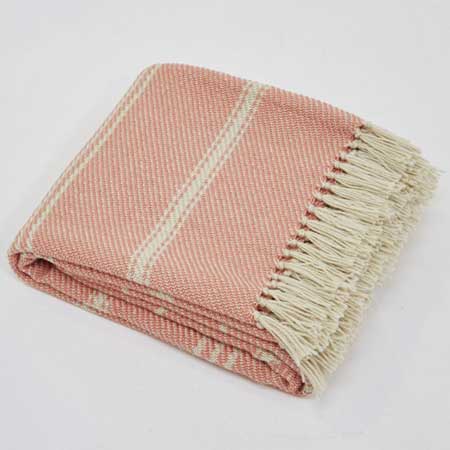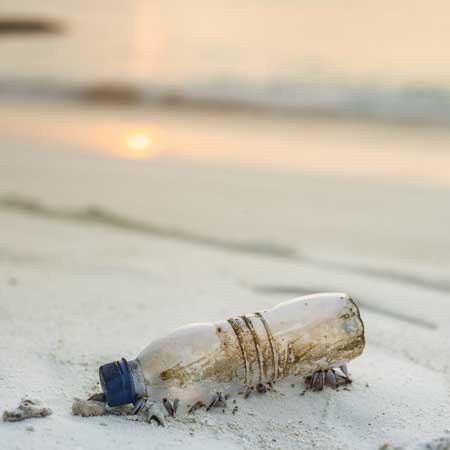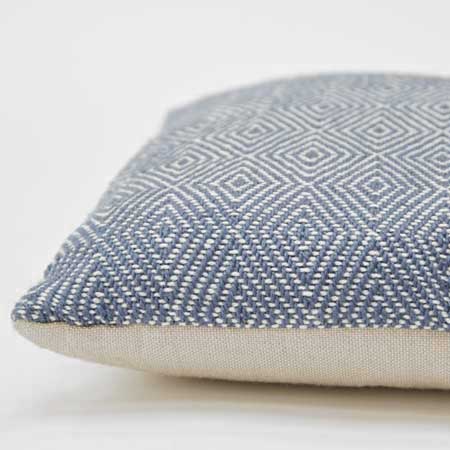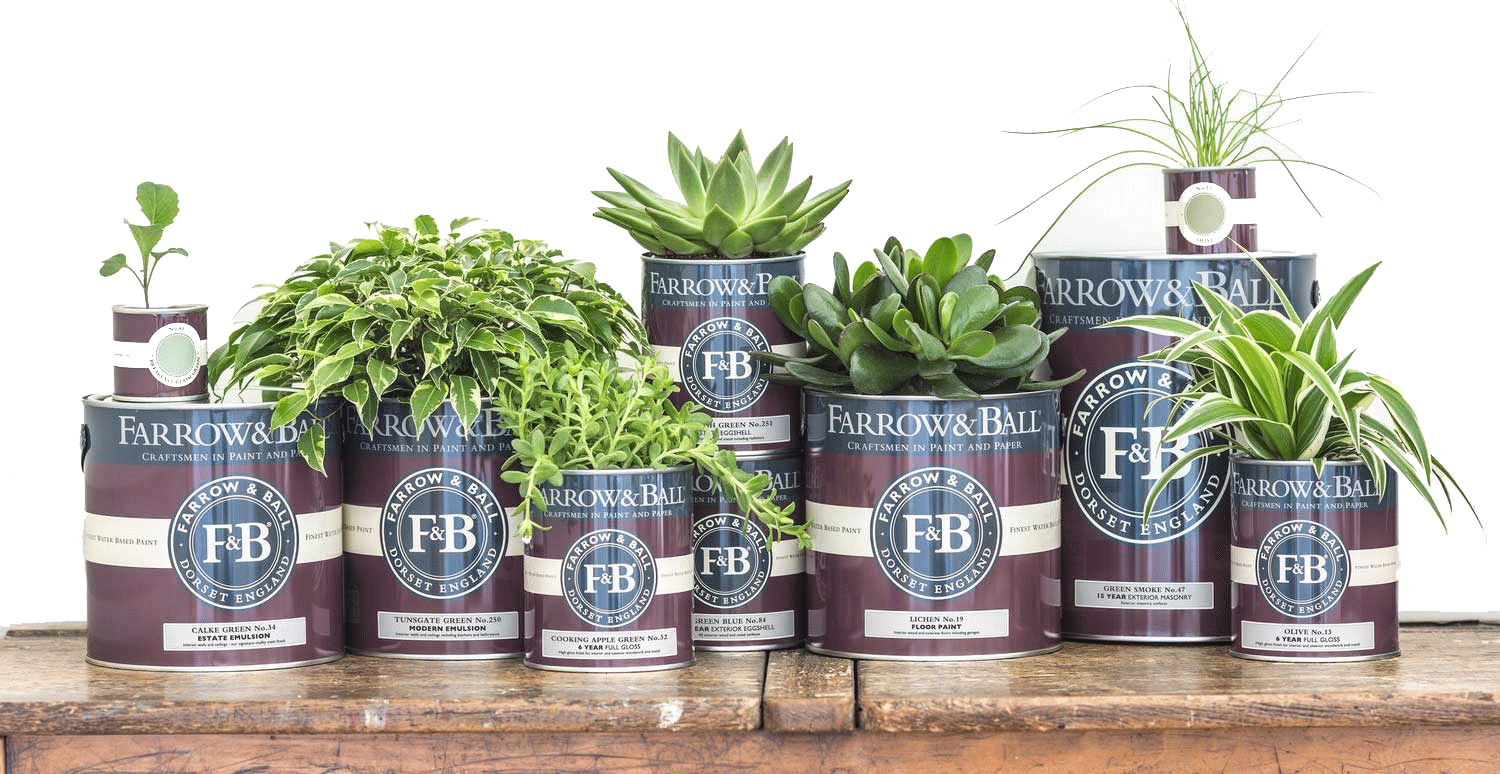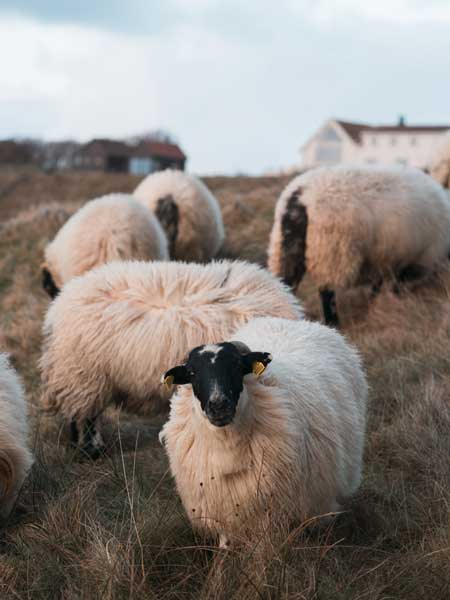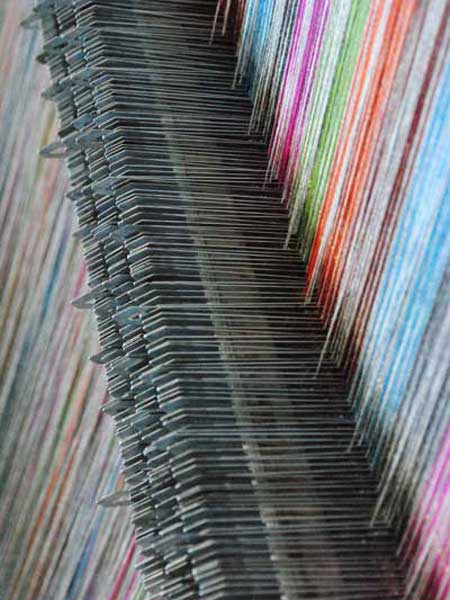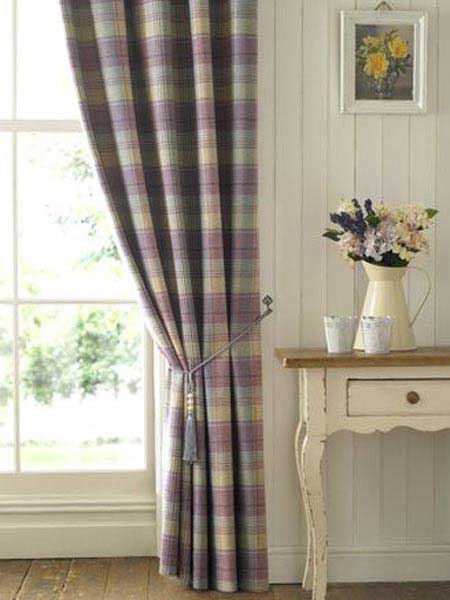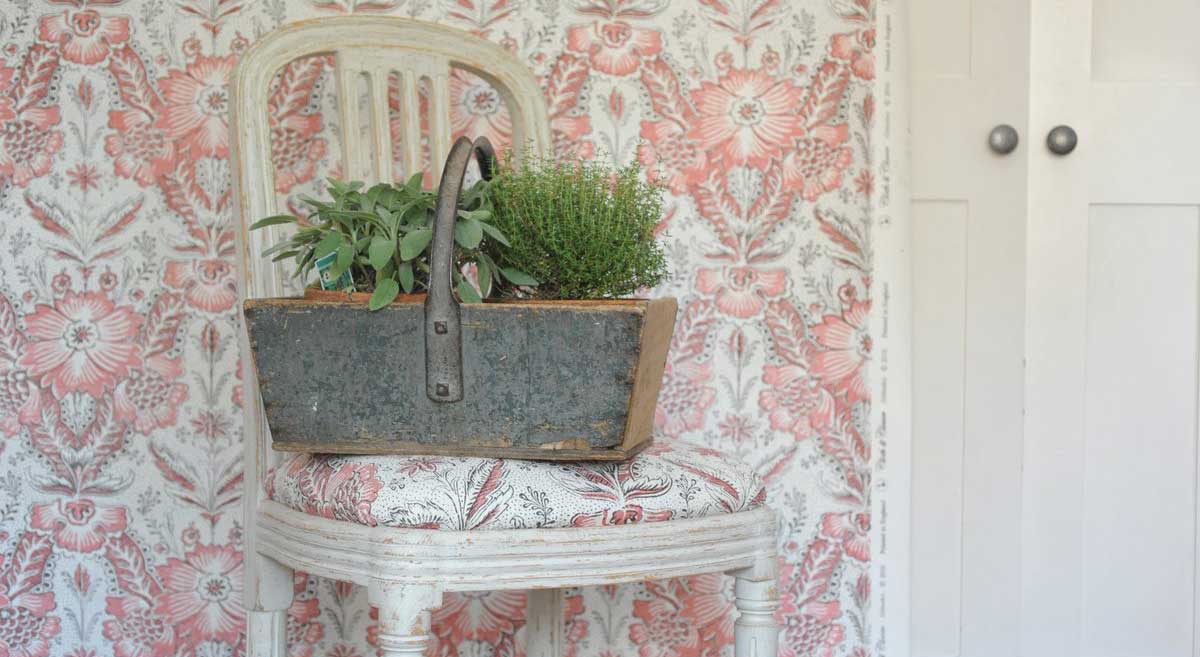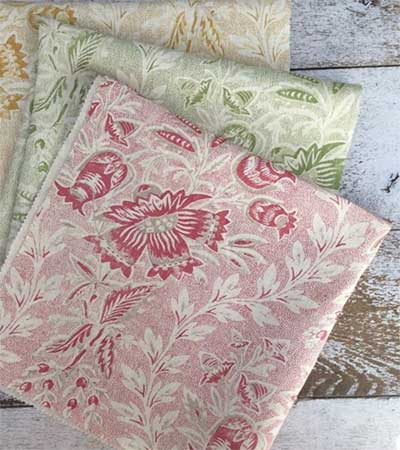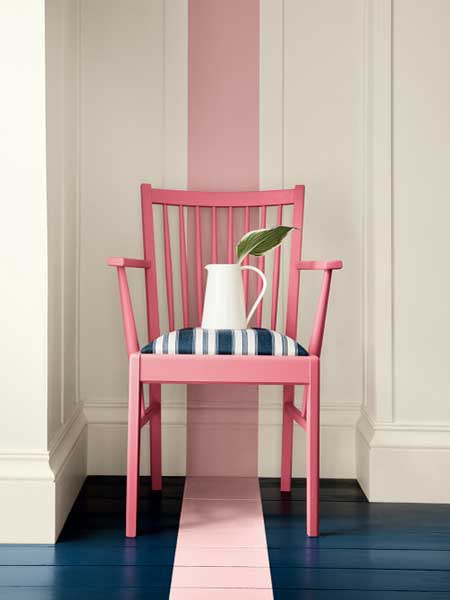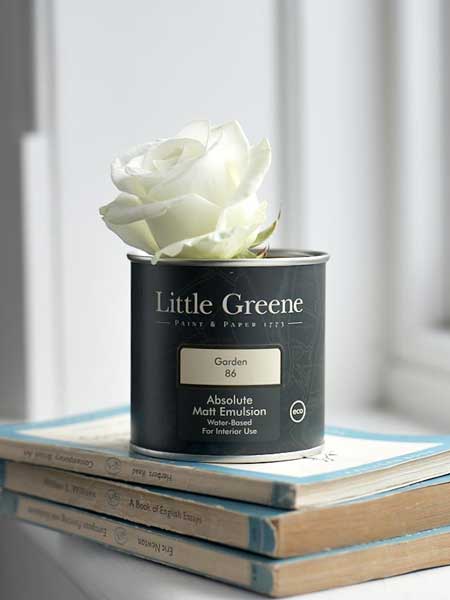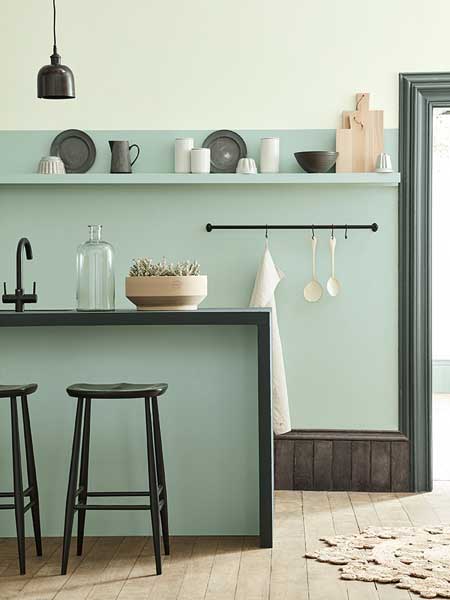Brands Leading the Way in Eco-Friendly Home Decor
21st February 2022The increased awareness of environmental issues and their impact on the planet is having a profound influence on how we shop. As consumers look for companies that offer more than just the right products, we have chosen our favourite eco-friendly brands that are working hard to make a difference in the world of interior design. From vegetable dyes to FSC papers, we look at the brands proving that sustainable design is more than just a trend.
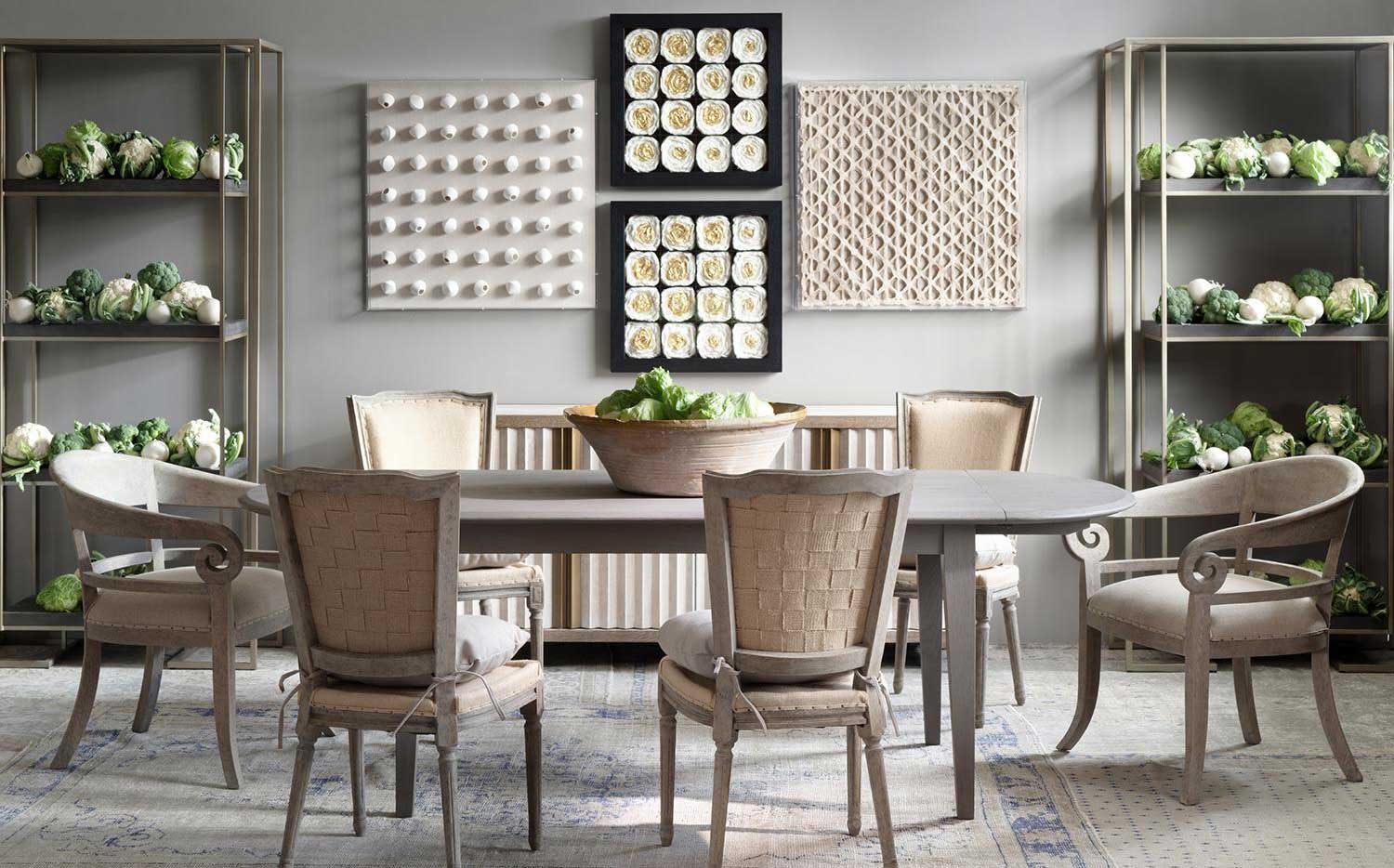

Andrew Martin Furniture
Andrew Martin manufactures many of its furniture in Nottingham, UK. All items are made from scratch, by hand, using ethically-sourced materials and where possible, local suppliers. They are extremely proud to have reduced their carbon footprint to nearly zero by adopting an innovative recycling process throughout their production.
They re-use the waste from their mill to feed a biomass boiler which in turn, provides hot water and heating for the factory. Any ash produced in their processing is collected and donated to a local allotment to enrich the soil and improve its growing potential. The factory, which also serves as a training school for apprentices, embraces new technologies that benefit the environment into their manufacturing processes. These practices are passed down to new generations wanting to learn the art of upholstery, enabling the artistry to endure.
Weaver Green
We are extremely proud to be stockists of Weaver Green products which are made from recycled plastic bottles. You would never guess that their stunning range of rugs, cushions and throws started life as single use plastic. Cleverly manipulated into a workable textile fibre, they have the softness of wool and are also hard-wearing, mould-resistant and easy to keep clean. Making soft open yarn from recycled plastic bottles uses as much as 70% less energy and almost 90% less water than creating them from scratch. Their production uses a closed water system that constantly recycles, purifies and reuses the same water and their dying vats are heated by burning discarded rice and wheat husks from local cereal farmers.
Once spun into a beautiful item of eco-friendly homeware, their plastic yarns are wipe clean, reducing the need for constant washing. By the end of 2019, the company had recycled their 100 millionth plastic bottle and with over a million discarded every minute, they will continue to give every bottle, typically only used for a few minutes, the chance to be part of something beautiful that will last for decades.
Farrow & Ball
Their dedication to the environment doesn’t begin and end with the products – it is woven into the way they do business. From the big decisions to the small impacts of their day-to-day operations, Farrow & Ball are a brand that has been widely recognised for their environmentally responsible practices. Back in 2010, they were the first in the industry to move to an entirely water-based range. Now, all their paints are classed as Minimal or Low VOC (Volatile Organic Compounds) - their gentle formulations are even safe to use on children’s toys!
Every component of their paint is responsibly sourced at their factory in Dorset, from the pigments that give it its rich colour to their iconic and infinitely recyclable tin. These eco-conscious decisions are extended to their wallpaper range with all their raw materials being sourced from sustainable forests. Responsibly manufactured in small batches in their UK factory, they are printed with water-based paints which means their wallpapers can be recycled, making them environmentally friendly from start to finish. Their decision to sell their wallpaper pastes in powder form means that it can enjoy a longer shelf life and customers can only mix what they need, therefore reducing further unnecessary waste.
Their uncompromising effort to reduce their impact on the world means that they also only work with suppliers who share their ethos. Within their factory, all their dry waste is recycled along with 97% of their liquid waste. But with the recent addition of their on-site water treatment facility, they are working to get this to 100%. A commendable target for a company who recognise that there is always scope to do more.
Weaver Green
Abraham Moon have a long history of working with farms to ensure that their wool is of the very best quality and is cultivated using eco-friendly methods. All their sheep are free range and are fed on wild pastures ensuring that only natural and nourishing sustenance’s are grazed. Once collected, the wool is scoured using bleach-free detergents and delivered straight to their mill in Yorkshire.
Always striving to minimise their consumption, the company have reduced their water usage by over 20% within the past decade. By installing new solar roofing, they are now able to generate power for their mill and sell any excess energy they produce back to the Natural Grid. The investment in state-of-the-art machinery and replacement of all lighting with LED alternatives has meant that they have already greatly reduced the energy it takes to produce their beautiful fabrics.
As wool lasts longer than most other materials, it does not have to be replaced as often making it an eco-friendlier option. And at the end of its long life, it can be returned to the earth's soil where it will decompose and be recycled as sheep feed on the grass that grows on top. A 100% renewable fibre that has served us since the Bronze Age, Abraham Moon is a family business who is ensuring that wool production is fit for the future.
Cloth & Clover
Cloth & Clover is yet another brand promoting craftsmanship in sustainable ways. Their fabrics and papers are designed and printed in locally using pure natural linens woven in Scotland at one of the last remaining working mills in the UK using flax yarn. Faster growing than cotton, flax requires less water and fewer fertilizers and pesticides than cotton. As every part of the plant can be used, it makes it an eco-friendlier option for fabric production. This also results in a more natural appearance with a weave that varies slightly from batch to batch, adding character and appeal to each design.
Little Greene
Heritage paint and wallpaper company Little Greene were one of the first to take steps in minimising their ecological impact and they have been continuing this at every stage of their production. From using recycled paint cans to printing on sustainably-sourced paper, they ensure that every decision made enables them to continue to minimise their ecological impact on the world.
Their environmentally friendly paints are made using sustainable vegetable oils and their water-based range has the industry’s lowest VOC content, meaning they release no nasty solvents into the atmosphere and are virtually odourless too. In particular, their Absolute Matt Emulsion, Intelligent Matt Emulsion and Intelligent Eggshell paints are the most trusted for use in children’s rooms and have been tested to strict European standards.
The paper used in their wallpapers range is sourced from FSC or PEFC certificated sustainable forests; so for every tree used another four are planted. The pigments used to print them are completely non-toxic and all manufacturing remains in the UK. Little Greene is a company with environmental issues at its core and it’s a fine example of the fact that paint and interior design doesn’t have to cost the earth.
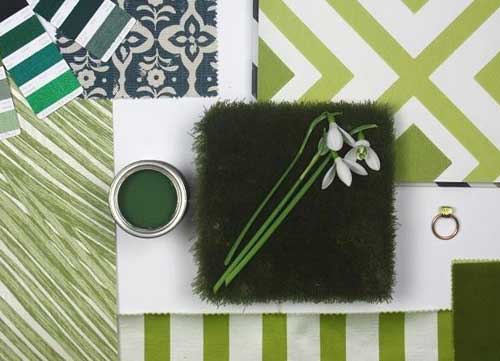

We’re Committed Too!
Here at F&P Interiors we operate as a small yet dedicated team from the beautiful South Downs in Sussex. We hand-pick the brands we stock carefully and are always on the lookout for suppliers that share our love of British craftsmanship and innovative production methods.
In-house we have made a conscious effort to reduce our waste with re-using packaging, purchasing recyclable sundries and recycling office waste. Once products are no longer available, we donate any fabrics or unwanted samples that would otherwise go into landfill, to local craft groups & schools for the children to turn them into brand new works of art!
If you’re interested in a particular product and want to find out more about its eco-credentials – just ask as we’re more than happy to provide you with any information on how your product became what it is today.
- paypal
- visa
- mastercard
- amex

